Related Research Articles

The Bodleian Library is the main research library of the University of Oxford. Founded in 1602 by Sir Thomas Bodley, it is one of the oldest libraries in Europe. With over 13 million printed items, it is the second-largest library in Britain after the British Library. Under the Legal Deposit Libraries Act 2003, it is one of six legal deposit libraries for works published in the United Kingdom, and under Irish law it is entitled to request a copy of each book published in the Republic of Ireland. Known to Oxford scholars as "Bodley" or "the Bod", it operates principally as a reference library and, in general, documents may not be removed from the reading rooms.
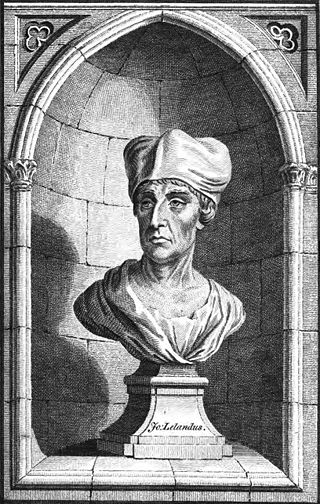
John Leland or Leyland was an English poet and antiquary.
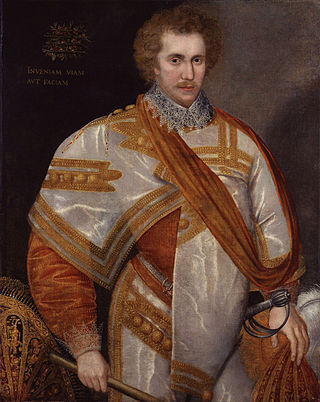
Robert Sidney, 1st Earl of Leicester, was an English courtier, soldier, and landowner. He was chamberlain to Anne of Denmark.

John Roy Hooper was an English churchman, Anglican Bishop of Gloucester, later of Worcester and Gloucester, a Protestant reformer and a Protestant martyr. A proponent of the English Reformation, he was executed for heresy by burning during the reign of Queen Mary I.

Francis Russell, 2nd Earl of Bedford, KG of Chenies in Buckinghamshire and of Bedford House in Exeter, Devon, was an English nobleman, soldier, and politician. He was a godfather to the Devon-born sailor Sir Francis Drake. He served as Lord Lieutenant of Devon (1584-5).

Mary Herbert, Countess of Pembroke was among the first Englishwomen to gain notice for her poetry and her literary patronage. By the age of 39, she was listed with her brother Philip Sidney and with Edmund Spenser and William Shakespeare among the notable authors of the day in John Bodenham's verse miscellany Belvidere. Her play Antonius is widely seen as reviving interest in soliloquy based on classical models and as a likely source of Samuel Daniel's closet drama Cleopatra (1594) and of Shakespeare's Antony and Cleopatra (1607). She was also known for translating Petrarch's "Triumph of Death", for the poetry anthology Triumphs, and above all for a lyrical, metrical translation of the Psalms.
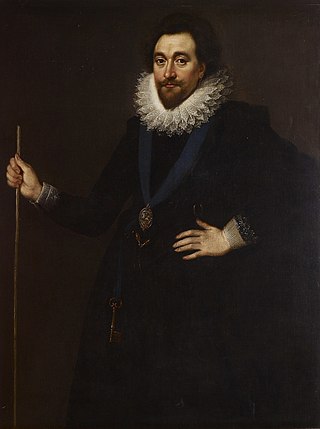
William Herbert, 3rd Earl of Pembroke, of Wilton House in Wiltshire, was an English nobleman, politician and courtier. He served as Chancellor of the University of Oxford and together with King James I founded Pembroke College, Oxford. In 1608 he was appointed Warden of the Forest of Dean, Constable of St Briavels Castle, Gloucestershire, and in 1609 Governor of Portsmouth, all of which offices he retained until his death. He served as Lord Chamberlain from 1615 to 1625. In 1623 the First Folio of Shakespeare's plays was dedicated to him and his brother and successor Philip Herbert, 1st Earl of Montgomery.
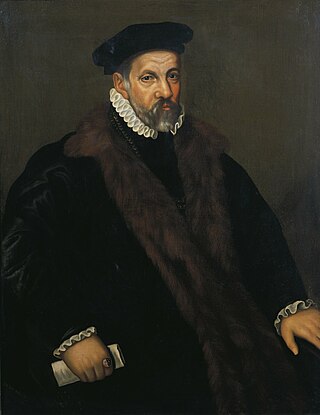
Thomas Wilson (1524–1581), Esquire, LL.D., was an English diplomat and judge who served as a privy councillor and Secretary of State (1577–81) to Queen Elizabeth I. He is remembered especially for his Logique (1551) and The Arte of Rhetorique (1553), which have been called "the first complete works on logic and rhetoric in English".
Thomas Newton was an English clergyman, poet, author and translator.
Gerard Langbaine, the elder was an English academic and clergyman, known as a scholar, royalist, and Provost of Queen's College, Oxford during the siege of the city.
Edward Cradock was an English theologian and alchemist.

Sir John Prise (1501/2–1555) was a Welsh public notary, who acted as a royal agent and visitor of the monasteries. He was also a scholar, associated with the first Welsh printed publication Yn y lhyvyr hwnn. He was a Member (MP) of the Parliament of England for Breconshire in 1547; Hereford October 1553; Ludlow April 1554; and Ludgershall November 1554.
William Chedsey (1510?–1574?) was an English Roman Catholic priest and academic, who became archdeacon of Middlesex in 1556 and President of Corpus Christi College, Oxford in 1558.
Sir John York or Yorke (c.1490-1569) was an English merchant and landowner who became Master of the Mint and a Member of Parliament.
Timothie Bright, M.D. (1551?–1615) was an English physician and clergyman, the inventor of modern shorthand.
The Forrest-Heyther partbooks are a set of six manuscript partbooks copied in England in the sixteenth century. They are an important source of polyphonic Mass Ordinary settings by composers from the reign of Henry VIII, including John Taverner and Robert Fayrfax.
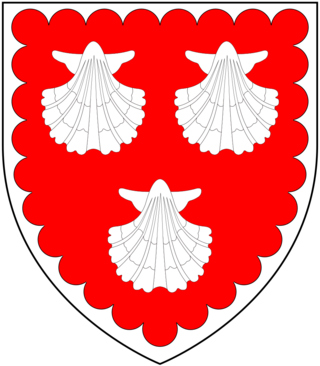
Walter Erle (c.1515/20-1581) of Colcombe in the parish of Colyton, of Bindon in the parish of Axmouth, both in Devon, and of Charborough in Dorset, England, was a courtier and servant of the Royal Household to two of the wives of King Henry VIII, namely Catherine Howard and Catherine Parr, and successively to his son King Edward VI (1547-1553) and two daughters, Queen Mary I (1553-1558) and Queen Elizabeth I (1558-1603) during their successive reigns.

Samuel Woodford, was an Anglican divine and poet.
Oxford, Bodleian Library, MS Fairfax 16, also known as the Fairfax Manuscript, is a fifteenth-century Middle English poetic anthology which contains one of the finest collections of Chaucerian verse of this period. Owned and commissioned by John Stanley of Hooton, Cheshire, Fairfax 16 was produced in Oxford or London in the mid-fifteenth century. Thomas Fairfax bequeathed it to the Bodleian Library in 1671.
Thomas Paynell was an English Augustinian and translator.
References
- ↑ Among Browne Willis's manuscript collections for Buckinghamshire, preserved in the Bodleian Library, double entries are found of the presentation of William Forest by Anthony Lamson on 1 July 1556 to the vicarage of Bledlow in that county; but in George Lipscomb's "Buckinghamshire" the name of the presentee is given as William Fortescue, and the discrepancy has not been cleared up.
- Attribution
![]() This article incorporates text from a publication now in the public domain : "Forrest, William". Dictionary of National Biography . London: Smith, Elder & Co. 1885–1900.
This article incorporates text from a publication now in the public domain : "Forrest, William". Dictionary of National Biography . London: Smith, Elder & Co. 1885–1900.